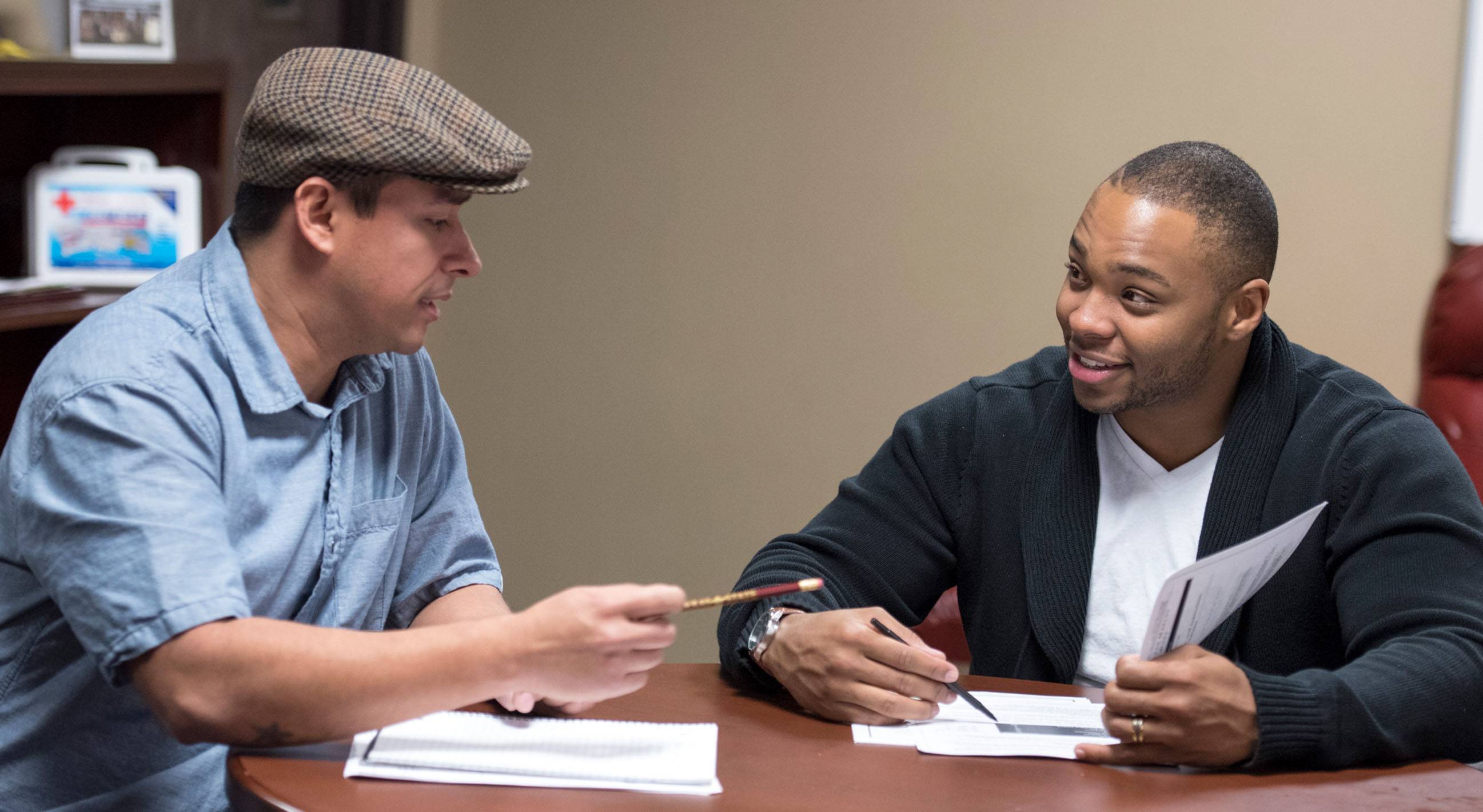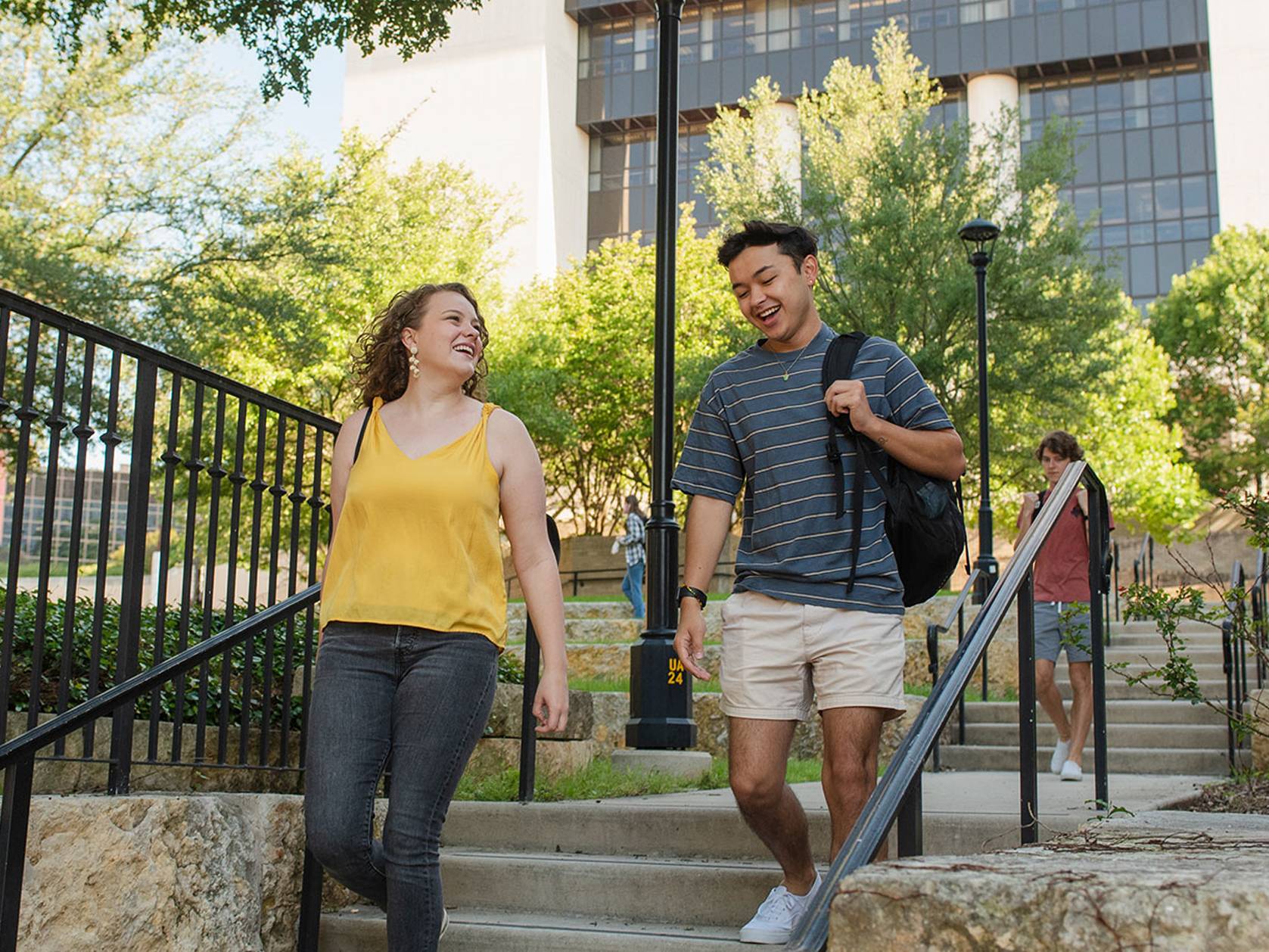
Pandemic funds become reskilling grants for hundreds of Bobcats to re-enroll
By Julie Cooper
The Bring Bobcats Back program was established at Texas State University in 2018 for students who had “stopped out” to return and finish their degrees. Bring Bobcats Back has expanded thanks to federal and state grant funding born out of the pandemic.
Through the U.S. Department of Education's Education Stabilization Fund Program via the Governor’s Emergency Education Relief (GEER) Fund, Texas State received $3 million in reskilling grant funds to help former students who have been affected by COVD-19 return to school and complete their degrees. Students who meet the eligibility requirement are eligible for up to $2,500 per semester.
These reskilling grants have enabled 479 students to enroll and 116 have graduated since 2020 with 37 different majors.
While these numbers don’t quite compare to the 4,400 who walked the stage in May, it is significant in that these Bobcats were once considered “stopouts” or “non-completers.” They are students who left the university with many credits, no degree, and may be still carrying student debt.
“We want to help them to get back on track, so our commitment is to reduce any barriers that prevent future success. That's the driving force behind Bring Bobcats Back — it is recognizing that there are 2.5 million students in Texas (3.9 million in the U.S.) who have started some kind of degree and haven't finished,” says Gary Ray, associate vice president, enrollment management and marketing. “We were working at that time to find funding because we recognize that the students are trying to come back and face the biggest barriers — such as finance and flexibility.”

Ray cites the No. 1 goal of the state’s 60X30TX project – that by the year 2030 at least 60% of Texans ages 25 to 34 will have a certificate or degree. This goal was recently revised by the Texas Higher Education Coordinating Board (THECB) to have a Texas workforce made up of 25- to-64-year-olds with degrees or certifications. THECB estimates that each year, more than 48,000 students stopout at Texas colleges and universities have completed 75% of the credits needed for a degree. A student needs 120 hours to complete a bachelor’s degree, and 60 hours for an associate degree.
“Many students express an interest in returning but affordability was a major concern, so we began to look at new possibilities,” Ray says.
Students who want to change majors — to reskill — are urged to meet with an advisor. It may mean more credits and/or time.
Finding students who fit the criteria for re-admittance can challenging. When the reskilling grants were first offered the parameters set by the state were deemed very restrictive. Students who apply do not have to be former Bobcats. Anyone looking to complete a bachelor’s degree may apply.
For fall 2021-22 the eligibility requirements are as follows:
- Be a Texas resident eligible for in-state tuition as determined by the institution.
- Have filed a Free Application for Federal Student Aid (FAFSA).
- Are eligible for federal Title IV aid.
- Have been, and will affirm to, being affected by COVID-19.
- Are enrolled in an eligible academic degree program or workforce credential program on either a full- or part-time basis.
- Have not been enrolled in an accredited post-secondary institution in the previous academic (long) semester or previous six months.
To search for qualified students, Texas State partnered in 2020 with ReUp, a tech-enabled service whose motto is, “We help stopout students connect to complete.” Ray says the university learned about ReUp after applying for a grant through the Bill and Melinda Gates Foundation.
The focus was to contact students who were out for three consecutive long semesters (spring and fall). “ We didn’t always know why students left, and so they were going to provide us some of that feedback so that we can be proactive in addressing some of those issues on the front end. We discovered ReUp’s success at other partner colleges were having graduation rates going up by 4%,” Ray says. ReUp’s target was to reenroll 350 former Texas State students in the first year. That final number enrolled was 346.
ReUp’s success coaches work with students “all through their journey to complete college,” says Mira Fontana, director, partner success for ReUp. She says they use multichannel communication channels to reach former students. Success coaches with ReUp provide “individualized support to every student through personal communication.”
Texas State has a two-year contract with ReUp with an option for a third year. Since the partnership began, ReUp has reached almost 10,000 Bobcats and engaged with more than 1,700 who are considering a return to college or are in the process of applying.

Born out of pandemic
The federal and state funding was born out of the pandemic to aid in the continuation of education of students impacted by COVID-19. In 2020, a record 1,773 students withdrew from Texas State. That was 13% higher than the 2019 figures.
“It’s about college access. It’s about increasing enrollment and the awarding of meaningful credentials,” says Dr. Gene Bourgeois, provost and vice president of Academic Affairs. “The whole notion was to use this funding to upskill and reskill those persons, including an attainment of a college credential – like a degree to make them more workforce ready and competitive for jobs.” Bourgeois says that Texas State is among the top five universities and community colleges competing for state funds.
Dr. Todd Sherron, assistant professor of practice, from the Department of Organization, Workforce, and Leadership Studies (OWLS), College of Applied Arts, was responsible for obtaining and overseeing the first $1.5 million reskilling grant from the THECB. OWLS primarily serves working adults, student veterans, and service members and is designed to accelerate degree completion by credentialling work-life learning and training into college credit and offering eight-week online courses. Sherron says many of the students finish their degree in two to three semesters.
Dr. Christopher Murr, assistant vice president, Financial Aid & Scholarships, garnered the second $1.5 million reskilling grant, which provided Texas State with a total of $3 million. “As a result, we are reaching out to students through social media, community newspapers, radio, and other types of media services to let folks know we can help them come back, reengage and complete their degree with Texas state,” Murr explains.
Completion grants help
In addition to these reskilling grants, Financial Aid & Scholarships applied for and received from the state funding for a completion grant that provides eligible students up to $1,000 each to pay off outstanding charges with the university. “Such debt is often another barrier that we can now better help students overcome and return to school, Murr says, and adds that returning students are also eligible for scholarship consideration.
Texas community colleges saw enrollment drop by 86,000 since 2019. “That’s another thing that we saw — low-income students were most impacted by the pandemic and most likely to drop out. This program helps to get them back on track because it provides funding,” Ray says.
The university was able to apply for GEER funding and received the maximum amount which was targeted to help 1,000 students. “We are now spending $1.5 million on scholarships for those students that are re-enrolling or continuing, and then also a certain portion of each of those grants can be used to market it to reach those displaced workers or our students out there,” Ray says. “We can also take students who stopped out from other schools with the expansion of the grant or displaced workers. It really is a three-dimensional approach now that's been scaled because of the funding that we got from the state.”
The response from students and their families to the stopout recruitment and ReUp’s success coaches has been very positive. “The response we get is so wonderful. You have parents taking the phone from their daughter, saying, ‘I just lost my husband. We didn't know how we were going to do this. I can't believe you're actually calling us to give us more money to help us through the situation,’ ” Murr says.